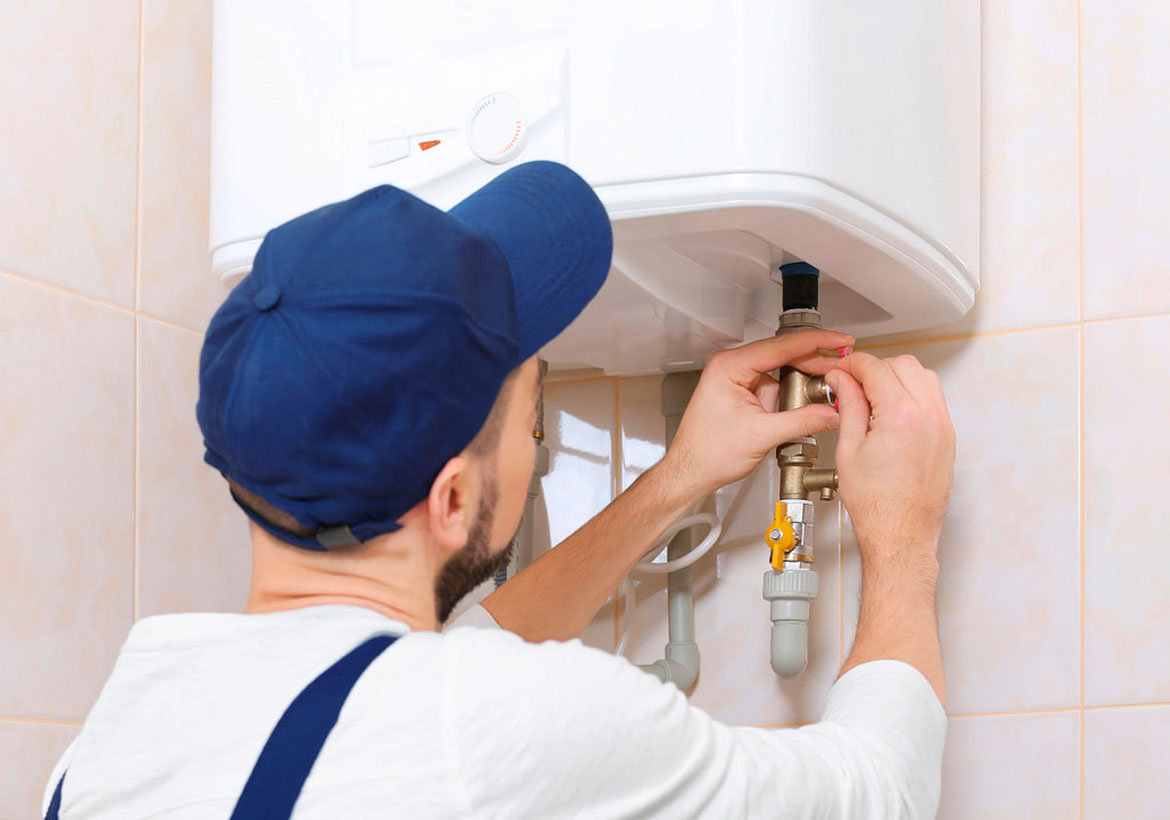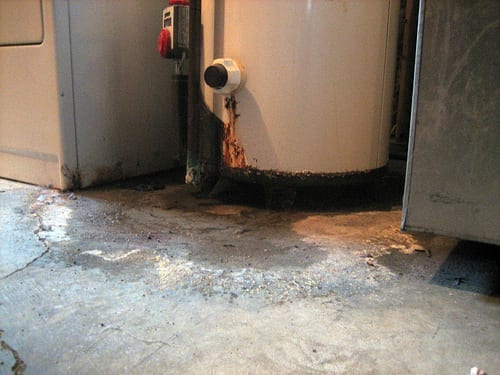Crucial Measures House Owners Must Follow When Dealing with Malfunctioning Heating Units
Crucial Measures House Owners Must Follow When Dealing with Malfunctioning Heating Units
Blog Article
What are your thoughts and feelings about How to Avoid a Broken Hot Water Heater?

Whether it lies in the basement or a different area, damaged water heaters can trigger stress and anxiety. A standard unit holds 80 gallons, so an over night leak will certainly bring about a flood. This leads to significant building damage with drenched walls as well as floorings. Having no hot water supply is additionally troublesome. If you are taking care of these issues, make note of the following:
Shut Down Source Of Power
Prior to calling the plumber, shut down a gas hot water heater by transforming the temperature level dial. This is generally situated on top of the thermostat. Change off the circuit breaker if you have a version that runs on electric power. This will certainly prevent electrocution, specifically if there is a leakage as water is a conductor. Typically, the burner shuts off when the water strikes a details temperature level. However with a damaged storage tank, it may malfunction. Sufficing off guarantees you stay safe.
Cut Off the Cold Water Supply
Cut off the storage tanks touch water supply from the resource. When your tank is in excellent condition, the cool water stops filling up when the container is full. If you can not locate it or reach it, you should transform off that primary water supply line outside your property.
Call the Plumber
After doing the initial 2 security actions, you need to call your plumber to come right away to take care of a ruptured hot water heater. Keep in mind that your device will certainly not simply conk out significantly overnight. There are generally indicators that your aging hot water heater has sediment build-up in the interior. Make note of the following:
Don't wait on significant flooding to call the plumber. Already, you will have to spend even more to recover your property. Rather, as quickly as you spot these indications, have an expert involved evaluate your hot water heater thank. Normally, water heaters have a life expectancy of about 8 to 12 years. With routine assessment as well as upkeep, you can extend its life.
Tidy up Residential property
After calling the plumber, record damage by remembering as well as photos so you can declare your house owner's insurance. From there, start the prompt cleaning. Get any vital items to avoid additional soaking. Get rid of any type of standing water to avoid mold and also mold growth. If you have a submersible water pump, make use of that to drain pipes the water. Otherwise, the conventional pail technique will additionally function. Try to wipe out whatever, including wall surfaces and baseboards. Maintain them running to keep air distributing if you have an electrical fan and dehumidifier. This will help discourage mold and mildew growth.
Remember, if you observe any kind of issues with your water heater, call the pros right away. You can not take this issue gently since a malfunctioning thermostat can increase water temperature to a dangerously high degree, leading to accidental burns.
Whether it is located in the basement or a different area, busted water heating systems can create tension. Before calling the plumber, shut off a gas water heater by turning the temperature level dial. After doing the very first 2 safety and security actions, you must call your plumber to come right away to fix a fractured water heater. If you have a submersible water pump, use that to drain the water. Keep in mind, if you observe any type of problems with your water heating system, call the pros right away.
Is My Water Heater Broken?
The Water Heater is Old
No appliance will last forever. This includes a home’s water heater. During its lifespan, residents are going to face a situation where a new water heater installation will be necessary. The biggest problem with this is that most people are not sure when their water heater expires. Not knowing this can lead to serious risks if the unit begins to act up due to old age.
Most makes and models of water heaters will last between eight and 10 years. While 10 years is the age when water heater replacement is highly recommended, the need to replace the unit may occur before this time or after. If the unit doesn’t show any symptoms of a problem, it is a good idea to replace it at the 10-year mark (from the manufacture date).
Some of the symptoms that indicate a new unit is needed include rusting, leaks, noises, and a failure to heat up the water. Also, note that not all units have a 10-year life expectancy. The main exception to this rule is that a gas unit will last for six to eight years.
Rusty Heater Inlet Valve or Water
While steel is the strongest material on earth, it does have a weakness – rust. If corrosion occurs on a steel surface, it will begin to spread and eat through the steel in certain areas. On water tanks and pipes that are made of steel, rust is a warning sign of an impending leak.
The issue for many is trying to figure out if the rust is coming from the water heater or the pipes that lead to the faucet. If rust is seen, it is a clear indication that water heater service from the professionals is needed.
If rusty water appears out of the faucets in the bathtub or sink, it likely means a rusty water heater. If there is rust near the water inlet or the pressure relief valve, rust has likely developed inside the tank. If tap water appears rusty, it may be an issue with the pipes.
Strange Sounds from the Water Heater
Are there strange sounds coming from the tank? As a water heater gets older, rumbling noises may develop and get louder and louder as the water in the tank heats up. In homes where large amounts of hot water are used, the issue is likely going to be even more obvious when more serious issues arise. If there is a strange or loud noise coming from the unit, it is probably because of sediment buildup. A good way to remedy this problem is by flushing the heater. If this does not work, then a new unit may need to be installed.
Leaks
As a water heater gets closer to the end of its useful life, there is a higher chance there will be water around the tank. If there is water, this usually means leaks are occurring. Based on where the unit is located in the home, a leak may result in serious property damage.
Leaks are usually caused by expansions in the metal tank. The expansions occur as time passes and as the inside body of the tank is exposed to multiple heating cycles per day. When a fracture forms, the gap will be slight enough to hold the water in; however, in more serious situations, this will not be the case. If the tank is idle, the water will not leak but when the metal expands during each heating system, small amounts of water will get through the gap.

I recently found that piece about Water Heater Repair when perusing the web. Do you know somebody who is serious about the subject? Do not hesitate to promote it. Thanks for your time. Visit again soon.
Tap problems? Expert assistance available. Report this page